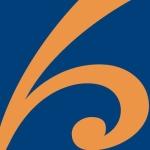Pandemic Influenza (H1N1) 09 Swine Flu - Update 156
The total number of deaths attributed to swine flu is now 19 following investigation of the death of a 35 year old woman who died in Waikato on 21 September – she had underlying medical conditions. Please note that this number is likely to change as the Coroner completes investigations into a number of influenza-related deaths that have occurred over the last few months.
The virus is still circulating in New Zealand, although the recorded rate of Pandemic Influenza infection has declined.
As at midday today there is no one in hospital with confirmed pandemic influenza (H1N1) 2009 or its complications. There was one person at this time last week.
The cumulative total of people in New Zealand who have returned a positive laboratory test for pandemic influenza (H1N1) 2009 is 3175, no change from last week.
Isolated outbreak in Christchurch serves as timely reminder
Last weekend, some students among a group visiting from Japan developed influenza. Four students tested positive for pandemic influenza H1N1, and a number of others had influenza like symptoms. It appears that their illness originated in Japan where they are experiencing higher than seasonal rates of influenza, predominantly pandemic H1N1. Following treatment the group were all declared safe to travel and left New Zealand yesterday.
Levels of influenza activity are increasing in the northern hemisphere, and with international travel it is likely that we will see further clusters of cases here over the coming months.
Remain alert to signs and symptoms and ways to reduce spread
While Pandemic Influenza case numbers are decreasing, people should still remain vigilant to the signs and symptoms of the disease and seek medical advice if the person who is sick is pregnant or obese or has underlying medical conditions such as respiratory disease, heart disease, liver disease, blood disorders, is immuno-suppressed or has a neurological condition.
If someone has flu-like symptoms and their condition worsens, you should seek medical advice straight away. Healthline provides free advice 24 hours a day, seven days a week. Healthline 0800 611 116.
We should all continue to follow the same basic public health advice- regularly wash and dry hands, stay home if sick with flu symptoms, and cover your coughs and sneezes.
Working group established to review H1N1 deaths
A working group has been set up to review all death or severe illness resulting from pandemic influenza H1N1 for all New Zealanders. Cindy Farquhar, an obstetrician and gynaecologist and chair of the Perinatal and Maternal Mortality Review Committee has been appointed as chair of the working group. She said it was important to learn as much as possible about the impact of this virus on New Zealanders. "We want to look at each case, particularly those who had severe illness to see what we can learn that will be helpful and assist with the health response to the anticipated second wave," Dr Farquhar said. The group's first report is expected to be released in the first quarter of 2010.
Healthline Calls
The percentage of callers to Healthline with influenza-like symptoms slightly increased over the past week, and is slightly above last year’s rate at the same time. Call numbers have been decreasing over recent weeks.
Australian Situation
For the number of confirmed cases in Australia, go to the Australian Government's Department of Health and Ageing website at: http://www.healthemergency.gov.au/internet/healthemergency/publishing.nsf/Content/updates
International Update from the World Health Organization
As at 11 October 2009, worldwide there have been more than 399232 laboratory-confirmed cases of pandemic influenza 2009 and over 4735 deaths reported to the World Health Organisation. For more information check: http://www.who.int/en/
ENDS
